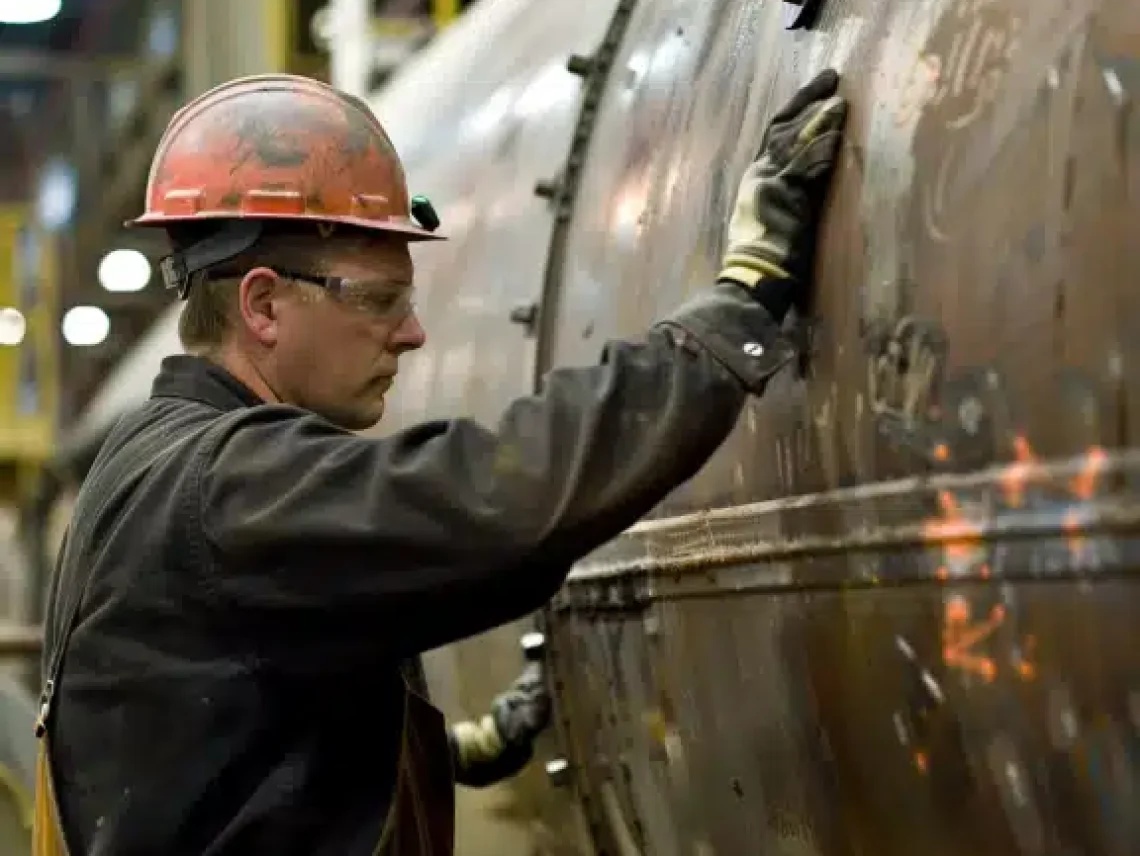Choosing Pressure Tanks: Vertical vs Horizontal

Table of Contents
ToggleIntroduction to Vertical vs Horizontal Pressure Tanks
Pressure tanks are essential components in diverse industries, from oil and gas to biogas and strength era. At Red River, we understand that each challenge is specific, and deciding on the right pressure tank orientation is important for the most fulfilling overall performance.
Importance of Tank Orientation in System Performance
The orientation of your pressure tank – vertical or horizontal – can appreciably affect its efficiency and integration into your gadget. It’s now not pretty much area; it’s approximately aligning along with your undertaking’s particular desires and making sure of seamless operation.
Vertical vs Horizontal Pressure Tanks: Benefits of Vertical Pressure Tanks
Space Efficiency of Vertical Tanks
Vertical tanks are best for locations with restricted floor areas. Their layout lets in for the same capability as horizontal tanks but in a smaller footprint, making them best for city or restrained settings.
Maintenance Advantages of Vertical Designs
Vertical tanks regularly provide less complicated sediment drainage and can be extra sincere to look into, way to their upright orientation. This design can decrease preservation fees over time.
Vertical Tanks in Domestic Settings
In domestic settings, in which space is a top rate, vertical tanks can be a game-changer. They seamlessly integrate into existing systems, imparting efficiency without sacrificing overall performance.
Vertical vs Horizontal Pressure Tanks: Advantages of Horizontal Pressure Tanks
Accessibility and Ease of Maintenance
Horizontal tanks provide simpler get admission to for protection and inspection, mainly for large capacities. This accessibility may be a significant benefit in business settings in which regular maintenance is important.
Horizontal Tanks in Industrial Applications
In industries like strength era or minerals/factors processing, horizontal tanks can be greater realistic. Their design incorporates large volumes and integrates well with present commercial layouts.
Need a reliable partner?
FAQ: Understanding Vertical vs Horizontal Pressure Tanks
How does the orientation of a pressure tank affect its performance in intense climate situations?
The orientation of a pressure tank can impact its performance under extreme climate conditions. Vertical tanks, with their smaller footprint, are regularly taken into consideration for greater strength in excessive-wind scenarios because of their lower center of gravity. Horizontal tanks, on the other hand, may have a broader base, which can be beneficial in areas with seismic hobbies. However, the general layout and anchoring of the tank play an essential role in its stability and overall performance in intense situations.
Are there unique industries that decide upon one orientation over the other, and why?
Yes, enterprise desire regularly performs a position in tank orientation desire. For example, the oil and fuel industry frequently opts for horizontal tanks because of their large capability and simplicity of access for renovation. Conversely, vertical tanks are normally used in city water delivery systems wherein space is restrained. The choice depends on factors just as the nature of the fluid being stored, space availability, and the unique operational requirements of the industry.
Can the orientation of a pressure tank impact its electricity performance?
While the orientation itself doesn’t directly affect electricity performance, it could have an impact on the general machine layout, which in turn impacts efficiency. For example, a vertical tank might be greater appropriate for structures in which gravity plays a role within the motion of the contents, doubtlessly decreasing the need for additional pumping electricity. In contrast, horizontal tanks may require extra energy for pumping but provide simpler maintenance and sediment removal, which could enhance lengthy-time period performance.
How does the maintenance requirement range among vertical and horizontal pressure tanks?
Maintenance necessities can range appreciably among vertical and horizontal tanks. Vertical tanks often have less sediment accumulation at the lowest due to their upright position, probably decreasing cleaning frequency. Horizontal tanks, at the same time as they may accumulate more sediment, are commonly easier to access for upkeep and inspections, especially in large sizes. The choice between vertical and horizontal should keep in mind the convenience of ongoing renovation and the nature of the materials being stored.
In terms of customization, are there any limitations based totally on the tank's orientation?
Both vertical and horizontal tanks offer a variety of customization alternatives, however there are some barriers based totally on orientation. Vertical tanks are probably constrained in diameter due to top restrictions, particularly in indoor settings. Horizontal tanks, at the same time as they could take longer to increase ability, may additionally require extra aid structures to hold integrity. Customization also depends on factors like material desire, pressure necessities, and particular enterprise requirements.
Table of Contents
ToggleRelated Blog Post
- Is it better to have a larger pressure tank?
- How do I know what pressure tank I need?
- What is the best material for a pressure tank?
- Which is better fiberglass or steel pressure tanks?
- Which is better a bladder tank or a pressure tank?
Solutions
In the realm of industrial solutions, Red River emerges as a pioneer, offering a diverse range of custom-engineered products and facilities. Among our specialties is the design and production of Custom/OEM Pressure Vessels, meticulously crafted to meet individual client requirements, ensuring performance under various pressure conditions. Our expertise extends to the domain of prefabrication, where Red River leads with distinction.
The company excels in creating prefabricated facilities, modules, and packages, reinforcing its stance as a forerunner in innovation and quality. This proficiency is further mirrored in their Modular Skids offering, where they provide an array of Modular Fabricated Skid Packages and Packaged equipment. Each piece is tailored to client specifications, underlining their commitment to delivering precision and excellence in every project they undertake.
